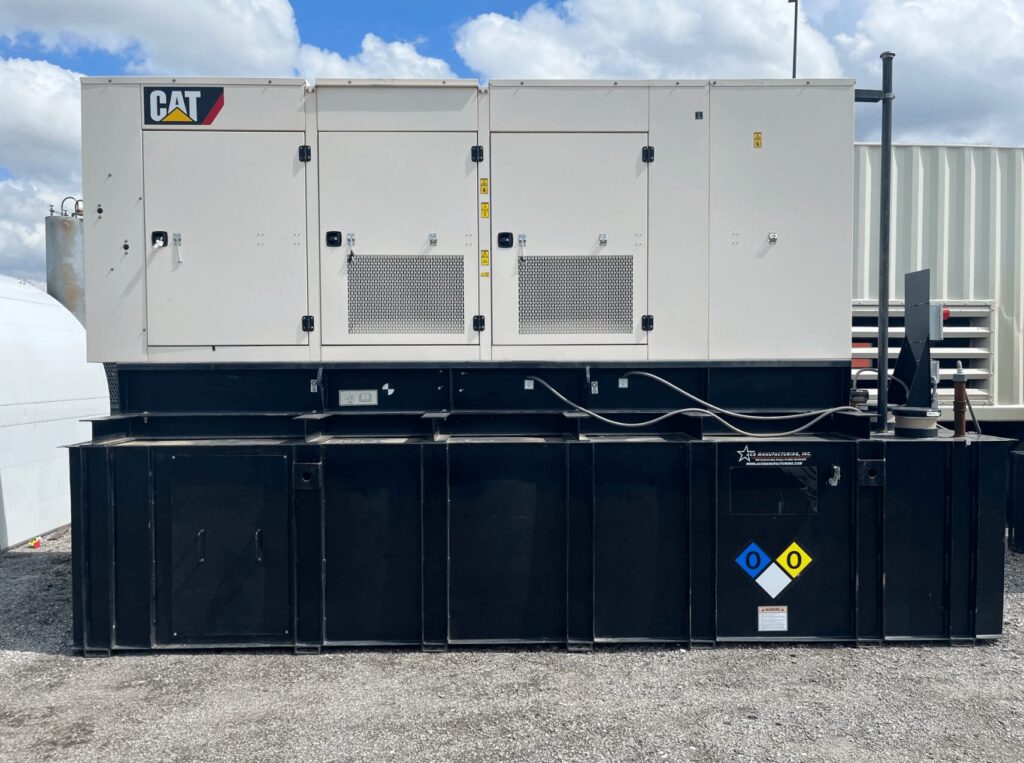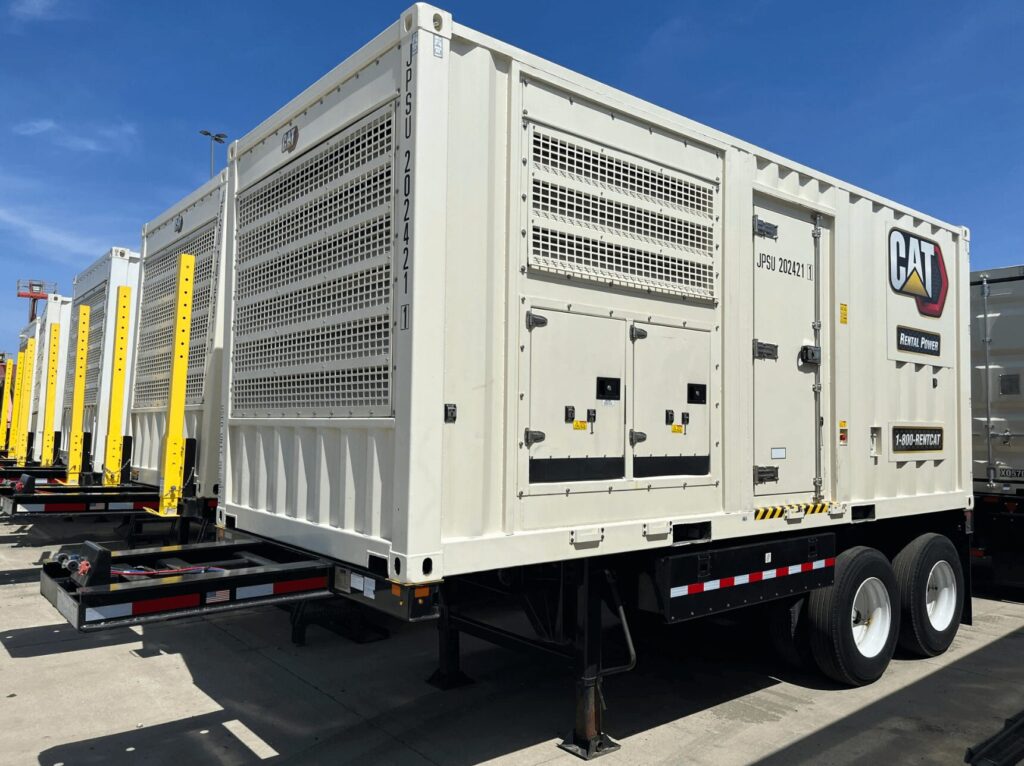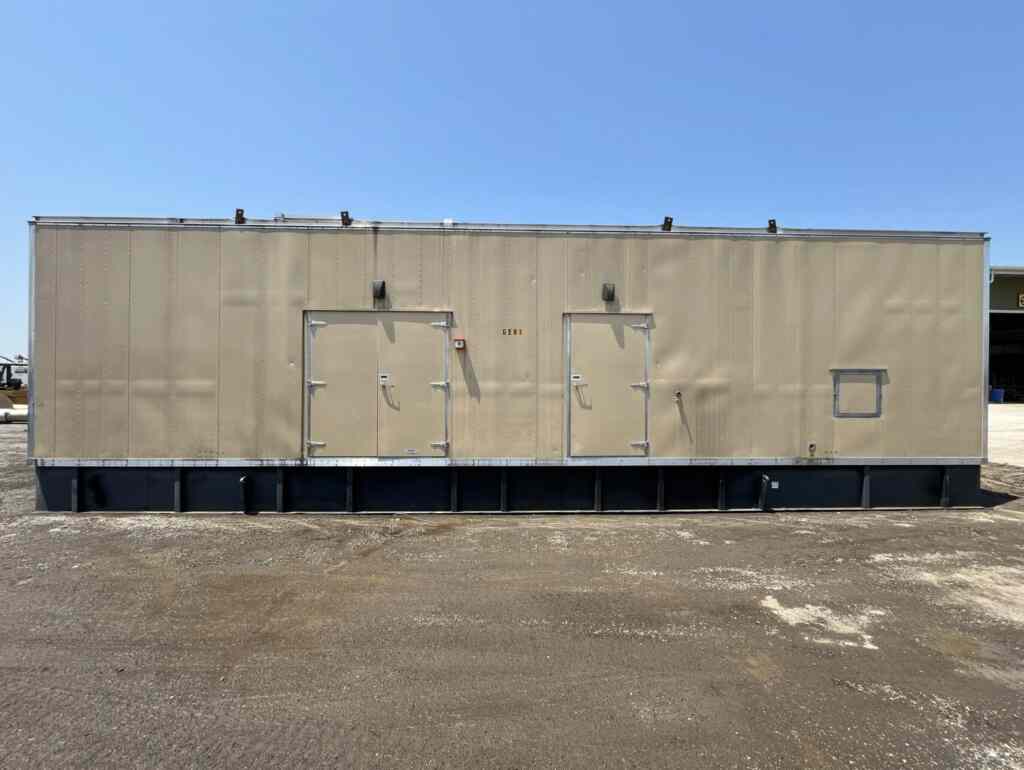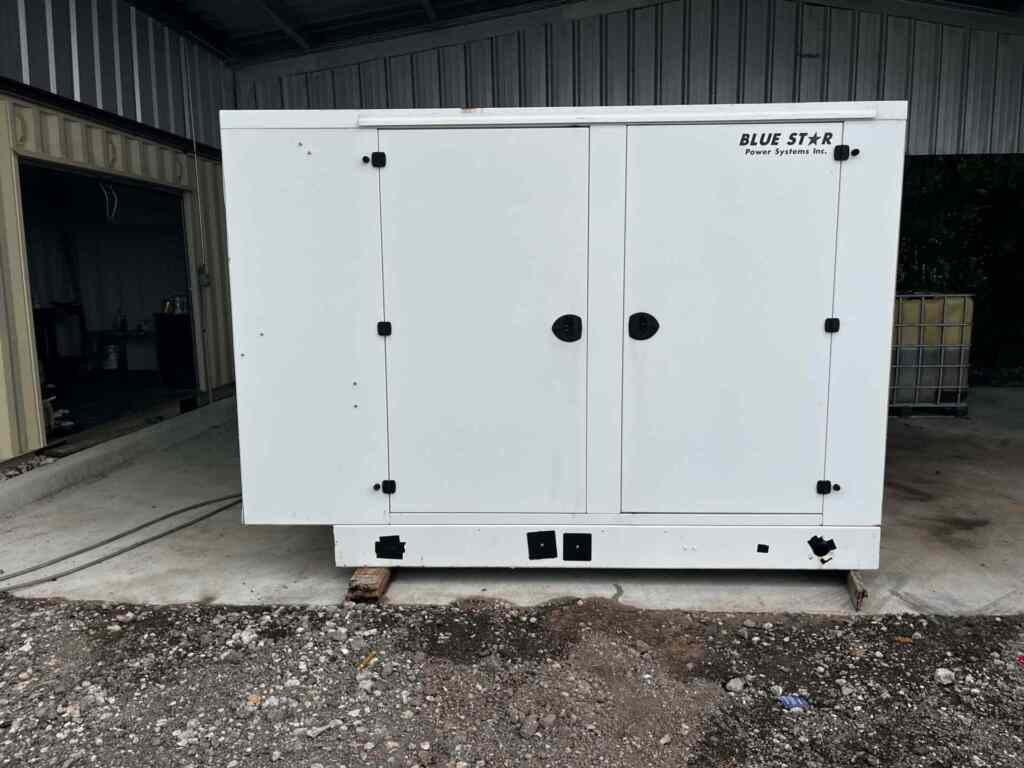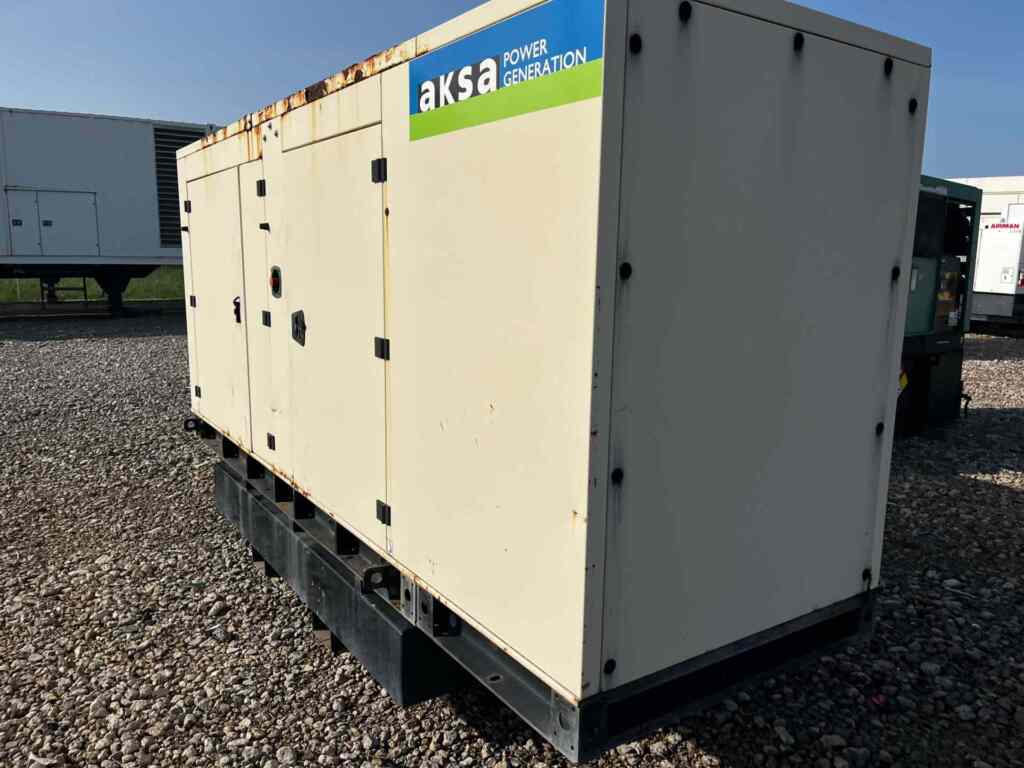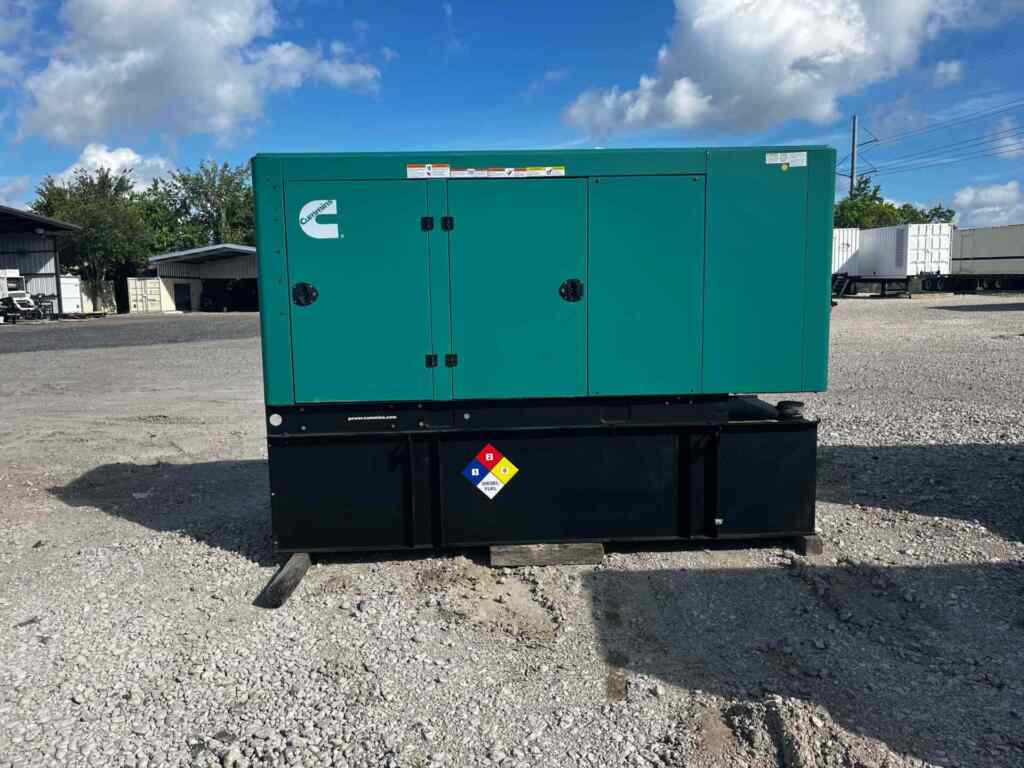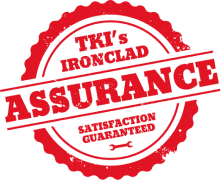Natural disasters pose a constant threat to businesses, disrupting power supplies and putting operations at risk. From hurricanes to earthquakes, these events can halt critical processes, leading to financial losses and compromised safety. For industries that rely on uninterrupted power, having a dependable solution such as an emergency power generator is vital. These generators provide a reliable backup power source, ensuring businesses can stay operational and protected, no matter the circumstances.
Why Your Business Needs Generators During Disasters
Power outages from natural disasters can bring your business operations to a halt, risking safety, productivity, and critical infrastructure. Generators provide the reliable power needed to keep your business running. Here’s why they are indispensable:
- Emergency generators activate automatically, delivering immediate backup power and minimizing costly downtime.
- Your critical systems, like servers, communication networks, and essential equipment, stay operational even when grid power fails.
- For healthcare operations, generators power life-saving equipment and ensure compliance with industry regulations.
- Refrigeration units remain functional, protecting your perishable inventory and preventing financial losses to your retail business.
- Your safety systems, including emergency lighting and alarms, continue to function, safeguarding employees and customers.
- You stay connected through operational communication systems, enabling coordination during outages.
With reliable power from generators, your business can navigate natural disasters effectively, ensuring continuity and protecting your vital assets.
The Best Emergency Power Generators For Natural Disasters
Industrial generators are powered by various fuel sources, each suited to an operator’s specific needs and applications. Understanding various features helps businesses choose the right generator for their requirements. Key types include:
Diesel Generators
Diesel generators are known for their efficiency and durability, making them a popular choice for long-term use. Their fuel consumption is low, and they require minimal maintenance, ensuring reliable performance during extended outages.
Natural Gas Generators
Natural gas generators offer a cleaner alternative to diesel. They are connected to a continuous gas supply, reducing refueling concerns. However, during natural disasters, gas lines may be disrupted, making dual-fuel options an ideal choice.
Portable Generators
Portable generators provide flexibility and mobility, making them suitable for smaller operations or temporary use. These units are easy to deploy and can support critical functions in off-grid or emergency scenarios.
Standby Generators
Standby generators are permanently installed systems designed to automatically activate during a power outage. They provide consistent, reliable power to critical systems and are ideal for businesses requiring uninterrupted operations, such as healthcare facilities, data centers, and manufacturing plants. With features like automatic transfer switches, these generators ensure seamless power restoration without manual intervention.
Steps to Prepare Your Facility for Power Outages
Preparing for natural disasters requires more than just installing an emergency power generator. Follow these steps to ensure your facility is ready for power outages:
- Develop an emergency plan that includes safety protocols, team roles, and communication strategies. Regularly review the plan with employees during scheduled training sessions.
- Assess power needs by determining the requirements for critical systems and selecting a generator with the right capacity.
- Install and maintain generators through professional installation. Schedule regular maintenance and testing to ensure your investment’s reliability.
- Enhance emergency lighting by installing battery-powered lights and illuminated exit signs. Inspect systems regularly to confirm functionality.
- Protect electronics with surge protectors and uninterruptible power supplies (UPS) for critical equipment to prevent damage and allow safe shutdowns.
- Stock emergency supplies such as flashlights, water, batteries, and first aid kits, keeping them accessible and up-to-date.
- Train employees on safety protocols, emergency procedures, and how to use backup systems effectively. Conduct regular drills and training sessions.
- Secure fuel storage by keeping fuel in approved, safe locations, and create a plan for quick resupply during extended outages.
- Establish communication protocols using radios or alerts to provide clear updates and instructions during outages.
- Conduct drills to simulate outages, testing and refining your emergency plan as needed.
These steps help ensure employee safety, protect infrastructure, and maintain operations during power outages. Industrial generators are central to your overall preparedness plan.
Using Generators During Natural Disasters: Essential Safety Guidelines
Generators provide critical power during natural disasters but must be used safely to avoid hazards. The table below outlines key safety guidelines to protect your business and ensure reliable operation:
| Safety Measure | Description |
| Choose a Safe Location | Place generators outside at least 30 feet from buildings to reduce carbon monoxide risks. Use elevated, ventilated surfaces to avoid flooding and ensure airflow. |
| Store Fuel Securely | Keep fuel in approved, labeled containers in a secure, ventilated area away from heat sources to minimize fire hazards. |
| Use Proper Power Connections | Install a transfer switch or use a certified professional to safely connect the generator to your electrical system. |
| Monitor Carbon Monoxide Levels | Install carbon monoxide detectors near generator locations and check regularly to prevent poisoning risks. |
| Clear Operational Areas | Keep the generator area free from debris and ensure proper airflow by avoiding placement near walls or objects. |
| Maintain Regularly | Inspect oil, filters, and fuel lines regularly. Conduct load bank tests to ensure readiness during emergencies. |
| Handle Portable Units Safely | Set up portable generators in dry areas before moving them outdoors. Keep them away from doors, windows, and vents. |
| Work with Certified Professionals | Engage licensed electricians or specialists to oversee installation, maintenance, and operation for safety and compliance. |
| Plan for Extended Outages | Stock extra supplies like fuel, oil, and filters, and arrange resupply options for long-term outages. |
| Adapt to Specific Disasters | Protect generators from snow in blizzards, secure them against winds in storms, and elevate them in flood-prone areas. |
Following these safety guidelines helps your business use generators safely during natural disasters, keeping employees protected and operations running smoothly.
Providing Emergency Backup Power to Vital Industries
Certain industries depend heavily on emergency backup power generators to maintain their operations during disasters. These include:
Healthcare
Hospitals and medical facilities require reliable backup power to operate life-saving equipment, surgical tools, and refrigeration for medications. Power outages can lead to dire consequences, including the failure of essential services during emergencies. Many healthcare facilities use both emergency generators and uninterruptible power supply (UPS) systems to ensure continuous operations.
Data Centers
Data centers store and process large amounts of information critical to business continuity. A power outage can halt operations, jeopardizing sensitive data and causing financial losses. These facilities typically employ robust backup generator systems alongside UPS units to maintain uninterrupted service.
Water Districts
Water districts depend on consistent power to operate pumps, treatment plants, and distribution systems that supply clean water to communities. Power outages can disrupt water delivery, compromise water quality, and delay critical maintenance. Emergency generators ensure that water systems remain functional, safeguarding public health and maintaining access to essential water services during disasters.
Telecommunications Industry
The telecommunications sector relies on uninterrupted power to maintain network connectivity, data transmission, and communication infrastructure. Power outages can lead to service disruptions, impacting businesses and individuals who depend on reliable communication. Emergency generators ensure that cell towers, data hubs, and critical telecom equipment remain operational, supporting connectivity during disasters and aiding recovery efforts.
Agricultural Industry
In agriculture, emergency generators are essential for powering irrigation systems, greenhouse climate control, and other essential equipment. Power outages can disrupt crop growth, livestock welfare, and overall productivity, resulting in significant financial losses. By providing reliable backup power, emergency generators help agriculture operations maintain continuity and reduce the risks associated with power disruptions.
Air Transportation Industry
Airports require uninterrupted power to operate communication systems, runway lighting, and security measures. Backup generators are essential for ensuring safety and efficiency in the aviation industry, where even brief outages can have widespread consequences.
Industries equipped with emergency backup power generators not only maintain operations during disasters but also play a vital role in supporting community recovery efforts by providing essential goods and services when they are most needed.
How to Choose the Best Emergency Generator for Your Needs
Selecting the right generator requires careful evaluation of your business’s power demands and operational priorities. Consider the following factors:
- Power requirements: Assess peak and average energy usage to determine generator capacity. Use tools like a Power Calculator to estimate your needs accurately.
- Fuel type: Choose between diesel, natural gas, or dual-fuel options based on availability and efficiency. Review our Diesel Fuel Consumption Chart to understand fuel requirements for different generator types.
- Portability: Decide if a stationary or portable generator best suits your facility’s layout and needs.
- Regulations: Ensure the generator meets local emission and safety standards.
Consulting with experts can simplify the generator selection process, ensuring your business invests in a reliable and effective power solution.
Reliable Power Solutions for Natural Disasters with Turnkey Industries
Turnkey Industries provides trusted industrial generators with over 15 years of expertise, ensuring businesses stay prepared for natural disasters.
- Diesel, natural gas, standby, and portable generators for various needs.
- Generators tested for reliable performance during emergencies.
- Custom solutions based on your power requirements.
- Full support, from capacity assessments to post-sale services.
- Inventory from top manufacturers for quality assurance.
Get reliable power for your business with Turnkey Industries. Contact us today to buy or rent a generator that meets your needs.
 Turnkey Industries offers a variety of high-capacity
Turnkey Industries offers a variety of high-capacity 